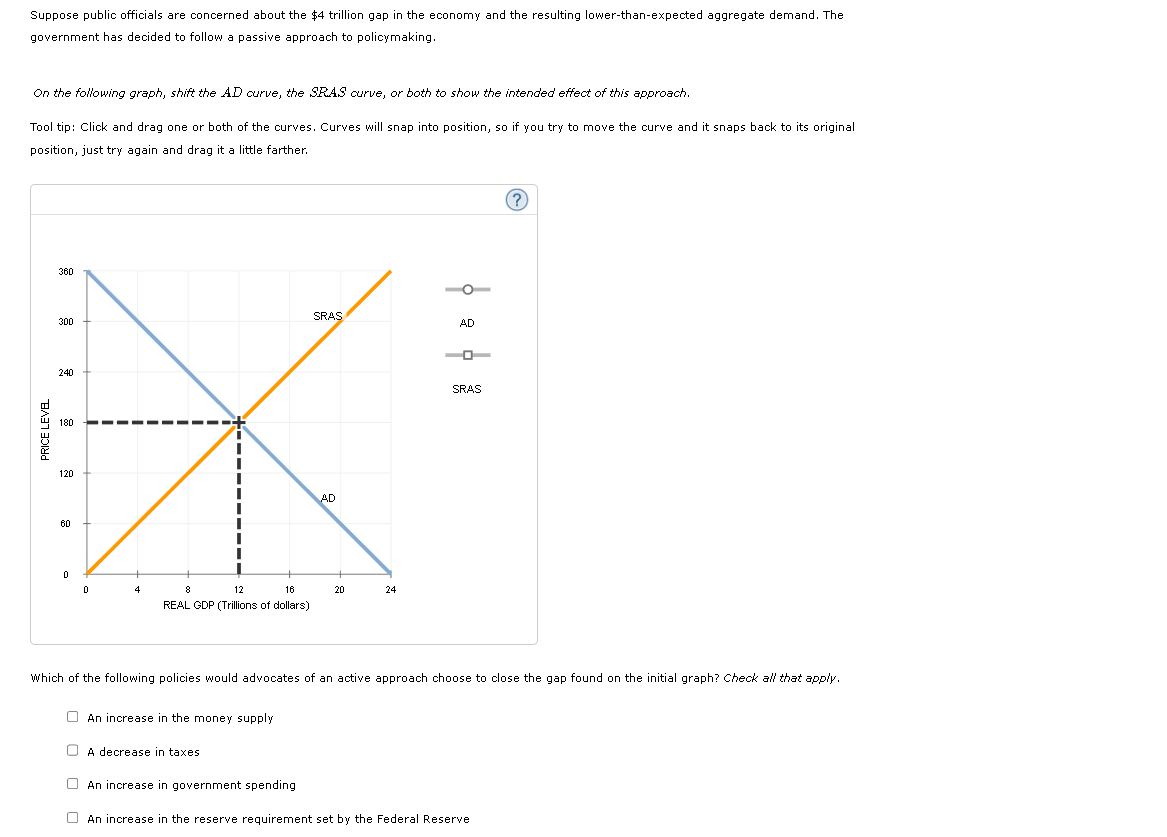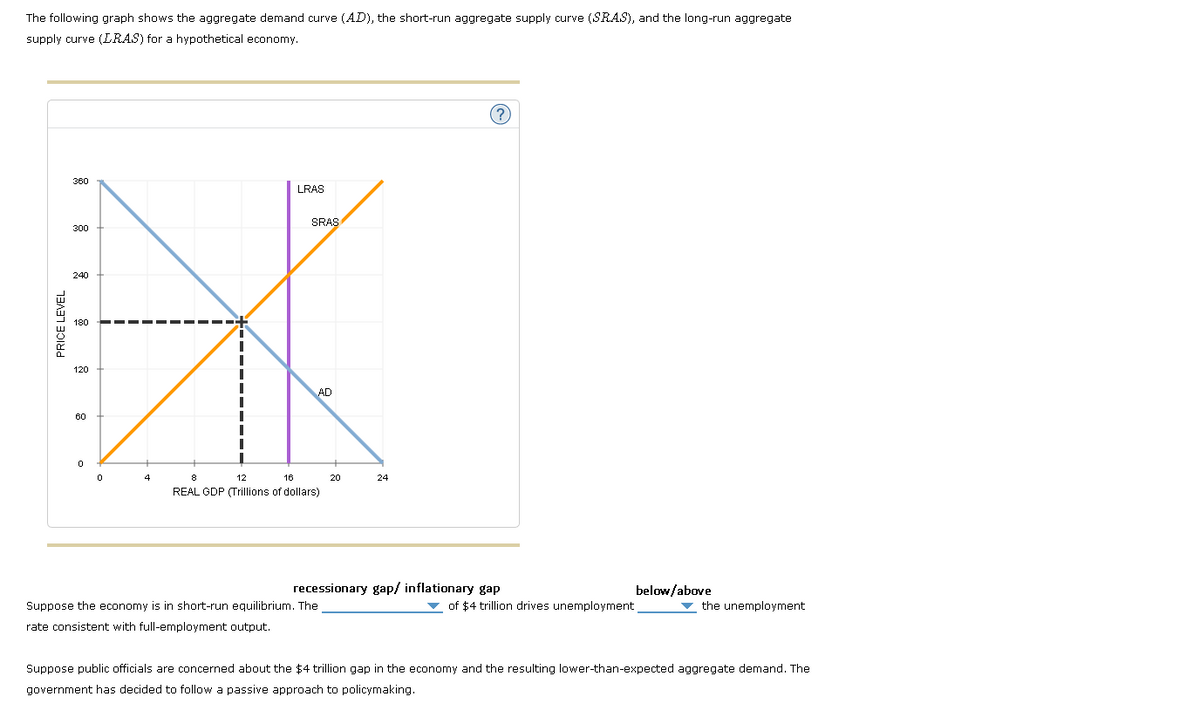Which of the following policies would advocates of an active approach choose to close the gap found on the initial graph? Check all that apply. An increase in the money supply A decrease in taxes An increase in government spending An increase in the reserve requirement set by the Federal Reserve
Monetary Policy and Equation of Exchange
The monetary policy has been defined as the policy that is used by the Federal Reserve (the central bank of the US) or the central bank (the central bank of India is RBI) along with the use of the supply of money to accomplish certain macroeconomic policies. Monetary policy is a supply-side macroeconomic policy that supervises the growth rate and money supply in the economy.
Monetary Economics
As from the name, it is very evident that monetary economics deals with the monetary theory of economics. Therefore, we can say that monetary economics, is that part of economics that provides us with the idea or notion of analyzing money as a holding with its function, which acts as the medium of exchange, the store of value through which the buying and selling are done and also the unit of account. It also helps in formulating the framework of the monetary policy of a bank in an economy which ultimately results in the welfare of the people residing in that particular economy. The monetary policy of an economy also helps to analyze and evaluate the financial health of it.
Need help with this. I gave possible answers(choose 1 only), also please show how to do the graph as well (where to move the new SRAS and AD if needed) Thank you!


Trending now
This is a popular solution!
Step by step
Solved in 3 steps









